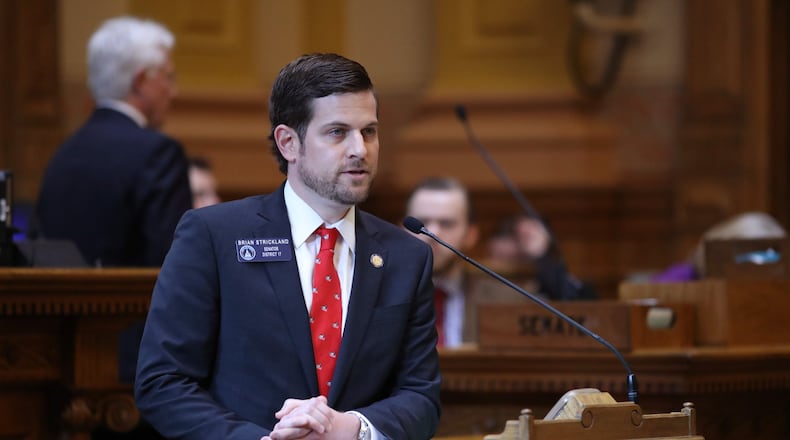A federal court found “compelling” evidence that Georgia lawmakers redistricted black voters to preserve Republican power at the state Capitol, according to a recent ruling.
But the three-judge panel denied a request for a preliminary injunction to halt upcoming elections in the affected districts in Gwinnett and Henry counties, where state Rep. Joyce Chandler and former state Rep. Brian Strickland narrowly won re-election in 2016.
The court wrote in its June 1 decision that although “changing demographics” were a reason the Georgia General Assembly redrew the districts in 2015, the plaintiffs couldn’t refute testimony that partisanship — not race — was a primary motivation. A pending U.S. Supreme Court ruling in a Wisconsin case could determine whether partisan redistricting is constitutional.
The ruling came in a case filed last year by several voters and the Georgia chapter of the NAACP, the nation's oldest civil rights organization, who alleged that legislators illegally gerrymandered state House districts to increase the percentage of white voters to protect incumbent Republicans.
“Their express purpose was to change Districts 105 And 111 just enough to protect the incumbents there, without endangering the incumbent Republican House members in the neighboring districts. And that’s exactly what they did,” according to the court’s order.
However, the plaintiffs fell short of documenting that state legislators and staff intended to depress black voter strength, the judges wrote.
“We did not move these voters because they are black, the state tells us. We moved them because they were Democrats. And under current Supreme Court precedent, the state tells us this motive is perfectly acceptable,” the order said.
The Georgia General Assembly redrew legislative boundaries in 2015 as Republicans feared they could lose the seats held by Chandler and Strickland, which they had won with 52.8 percent and 53.1 percent of the vote, respectively, the previous year.
Both Gwinnett and Henry counties had become more black and less white between 2000 and 2014. The number of white voters in Gwinnett declined by about 3,000, and black voters increased by 74,000, according to an email at the time from the Georgia Legislative and Congressional Reapportionment Office.
The increasing competitiveness of the districts caused the Republican-controlled Georgia General Assembly to redraw the districts in 2015, outside the standard process of redistricting every 10 years after each census.
Chandler and Strickland would have lost re-election in 2016 if their districts hadn't been changed, according to an expert for the plaintiffs cited in the court's decision. Strickland won a special election this year to the state Senate.
An attorney for the plaintiffs, Bill Custer, said Thursday he’s confident they’ll eventually prevail in the case, despite the court’s denial of the injunction.
“One of the key questions in the case is whether race predominated in the redrawing of Districts 105 and 111,” Custer said. “The fact that the majority found the evidence on that point to be ‘compelling’ is obviously a good sign.”
A spokeswoman for the Georgia Attorney General’s Office, which is defending the state against the lawsuit, declined to comment Thursday. The Georgia NAACP didn’t return a message seeking comment.
All three judges on the U.S. District Court panel agreed to deny the injunction, but one judge objected to his peers’ assertion that voters were denied “fair and effective representation.”
U.S. District Judge William Duffey wrote that references to the districts’ “changing demographics” doesn’t necessarily mean race was a factor in redistricting.
But U.S. Circuit Judge Beverly Martin and U.S. District Judge Timothy Batten wrote that their opinion is based in part on testimony from former House Reapportionment Committee Chairman Randy Nix, who said legislators and staff sat in a room together in front of a computer and attempted to draw safer Republican districts.
About the Author




